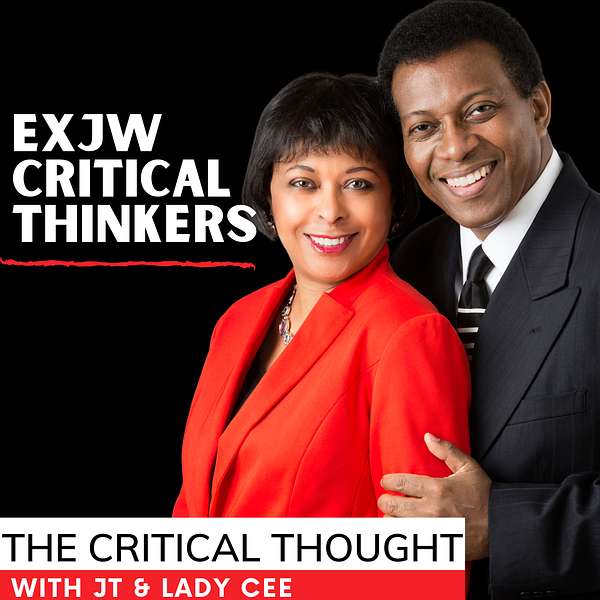
Ex-Jehovah's Witnesses-Critical Thinkers » Critical Thought Podcast
The Critical Thought encourages you to think critically about the teachings of Jehovah's Witnesses. As former members and teachers in this group, we have inside knowledge to help raise public awareness. We understand the psychological tactics the organization uses to attract new members.
Our goal isn't to attack the religion, but to share what we've learned about how the group operates. We want to expose the false teachings they use to control their followers. Many members carry a heavy burden of shame, fear, and guilt, struggling to keep up with the group's expectations. Some want to leave but stay out of fear of losing family and friends, pretending to be committed when they're not.
Through our platform, we hope to help anyone feeling trapped by the group's impossible standards or prevent others from joining. We aim to support educators, mend broken family relationships, and motivate people to pursue their education. If we can help even one person, we consider that a success.
Ex-Jehovah's Witnesses-Critical Thinkers » Critical Thought Podcast
Jehovah's Witnesses, We Have a Deficit - Where's My Money?
In this video JT focuses on his personal experience with the the financial aspects of Jehovah's Witnesses' circuit assemblies and regional conventions. JT also discusses the lack of transparency in the organization's financial dealings, particularly at higher levels.
Key Points:
1. **Always in the Red**: JT mentions that circuit assemblies always seem to be running a deficit, something he questioned even as a child. He didn't understand why until he became an elder and was responsible for circuit assembly accounts.
2. **Per Publisher Rate**: The organization charges a "per publisher rate" for every circuit assembly, guaranteeing a certain amount of money will be generated. For example, if the rate is $10 per publisher and there are 1,000 publishers, the assembly starts $10,000 in the red.
3. **Lack of Transparency**: While local Kingdom Halls and circuit assemblies provide detailed accounts of their finances, this transparency is not extended to district or regional conventions. The organization has never disclosed how much money is collected at these larger events.
4. **Accounting Practices**: At the local level, two people are required to count and sign off on the money collected, adhering to good accounting practices. However, this level of scrutiny is not applied at higher organizational levels.
5. **Money Makers**: JT points out that these assemblies and conventions are significant moneymakers for the organization. Despite this, there's no clear accounting provided to the general membership about where this money goes or how it's used.
6. **Personal Experience**: JT shares anecdotes from his time as an elder, including the pressure to meet financial targets and the lack of questioning among the elders about keeping some money in the account for future needs.
7. **Change in Policy**: Due to instances of "borrowing" (essentially stealing), the organization changed its policy to require two people to count and sign off on any money collected, even at the smaller book study level.
The video aims to encourage critical thinking about the financial aspects of being a Jehovah's Witness, questioning the lack of transparency and accountability in the organization's handling of funds.
Join us behind the scenes on Patreon